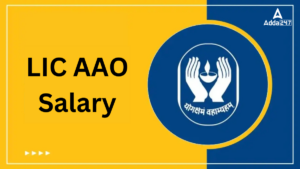Key Highlights of Economic Survey 2018-19
Guided by the dictum of “blue-sky thinking”, the Economic Survey underscored the ambitious agenda of applying principles of behavioural economics to achieve 8 percent of sustained GDP growth to make India a $5-trillion economy by 2024-25.
The Survey is the first for the new government, which came to power with an overwhelming mandate. “With the aspirations that have been kindled among our predominantly young population, India stands at a historic moment when sustained high economic growth has become a national imperative,” Chief Economic Adviser Krishnamurthy V Subramanian stated in his preface to the Survey. Prime Minister Narendra Modi has already laid down the vision of India becoming a USD 5-trillion economy by 2025.
Here are the key highlights from the Economic Survey:
- Survey sees Financial Year 2020 GDP growth at 7%, higher growth on stables macros.
- India needs to grow at 8% per year to be $5 trillion economy by Financial Year 2025.
- The survey suggests diplomatic type privileges, naming roads for top taxpayers.
- Investment the “key driver” of simultaneous growth in demand, jobs, exports, and productivity.
- Green shoots in investment activity seems to taking hold.
- Rural wage growth started increasing since mid-2018.
- Political stability should push the animal spirits of the economy.
- Poor enforcement of contracts and dispute resolution is a big hurdle. The faster legal process should be the top priority.
- Savings and growth are positively co-related. Savings must increase more than investment.
- Constant recalibration based on real-time data. Data must be created as a public good “of the people, by the people, for the people.
- Survey argues that nudging behaviour change is the simplest way to solve many social issues.
- Top policymakers must ensure actions are predictable. Policymaking needs: 1. Clear Vision 2. Strategic blueprint 3. Tactical tools for constant recalibration.
- The success of MGNREGS shows govt schemes can make a difference on the ground with skillful use of technology.
- A minimum wage policy for the bottom rung of wage earners to drive up demand and strengthening the middle class.
- Indian MSMEs need to be freed from shackles that convert them into dwarfs. MSMEs need to be seen as a source of innovation, growth and job creation.
- The policy should enable MSMEs to grow, create greater profits for their owners and contribute to job creation and productivity in the economy.
- India needs to increase per capita energy consumption to raise real per capita GDP by US$ 5000 and improve its HDI ranking.
- The Survey is inspired by Gandhiji’s Talisman: “…Recall the face of the poorest man [woman], and ask yourself, if the step you contemplate is going to be of any use to him [her].
- India will enjoy the “demographic dividend” phase in the next two decades but some states will start transitioning to an aging society by the 2030s.
- India moving forward from Swachch Bharat to Swasth and Sundar Bharat.
- Investment rate seems to have bottomed out.
- Govt stands by the fiscal consolidation path.
- Jan-March economic slowdown due to poll-related activity.
- Greenshoots in investment seems to be taking hold.
- NBFC stress reason for Financial Year 2019 slowdown.
- Decline in NPAs should push up CAPEX cycle.
- The general fiscal deficit is seen at 5.8% in Financial Year 2019 Vs. 6.4% in Financial Year 2018.
- Investment rate seen higher in Financial Year 2020 on improved demand.
- Oil prices are seen declining in Financial Year 2020.
- Accommodative MPC policy to help cut real lending rates.
- From ‘Beti Baco Beti Padhao’ to ‘BADLAV’ (Beti Aapki Dhan Lakshmi Aur Vijay Lakshmi).
- From ‘Give it up” for the LPG subsidy to ‘Think about the Subsidy’.
- From ‘Tax evasion’ to ‘Tax compliance’.
You may also like to Read:





 GA Capsule for SBI Clerk Mains 2025, Dow...
GA Capsule for SBI Clerk Mains 2025, Dow...
 The Hindu Review October 2022: Download ...
The Hindu Review October 2022: Download ...
 LIC AAO Salary 2025, Revised Structure, ...
LIC AAO Salary 2025, Revised Structure, ...





